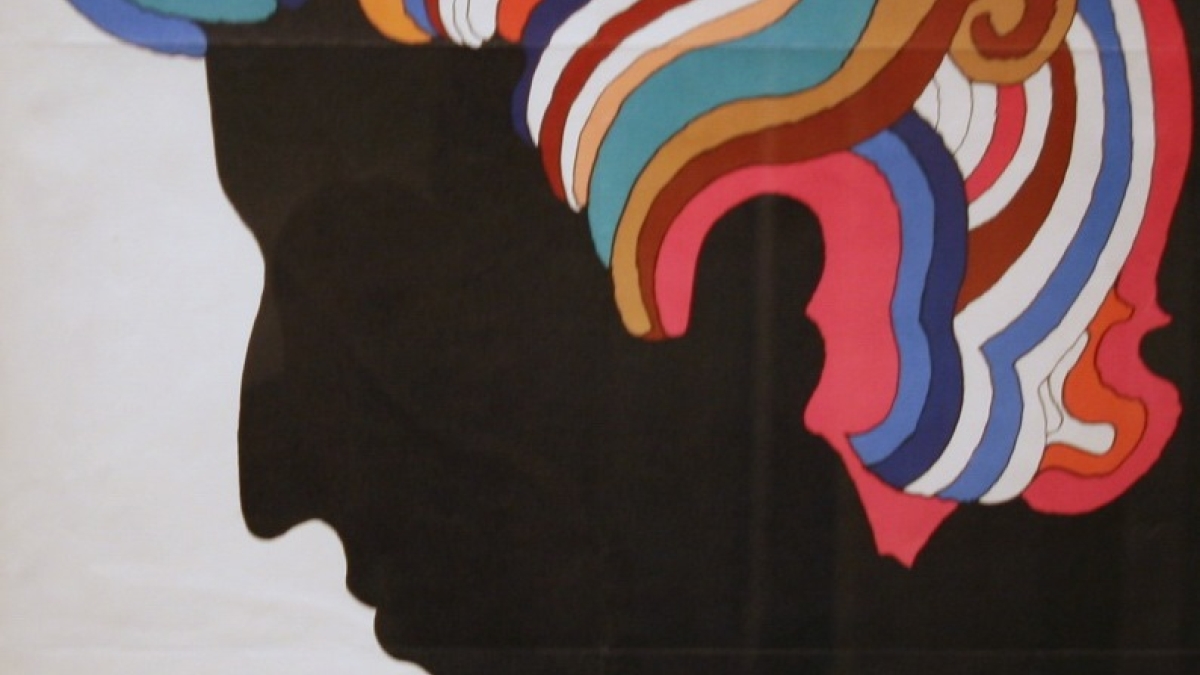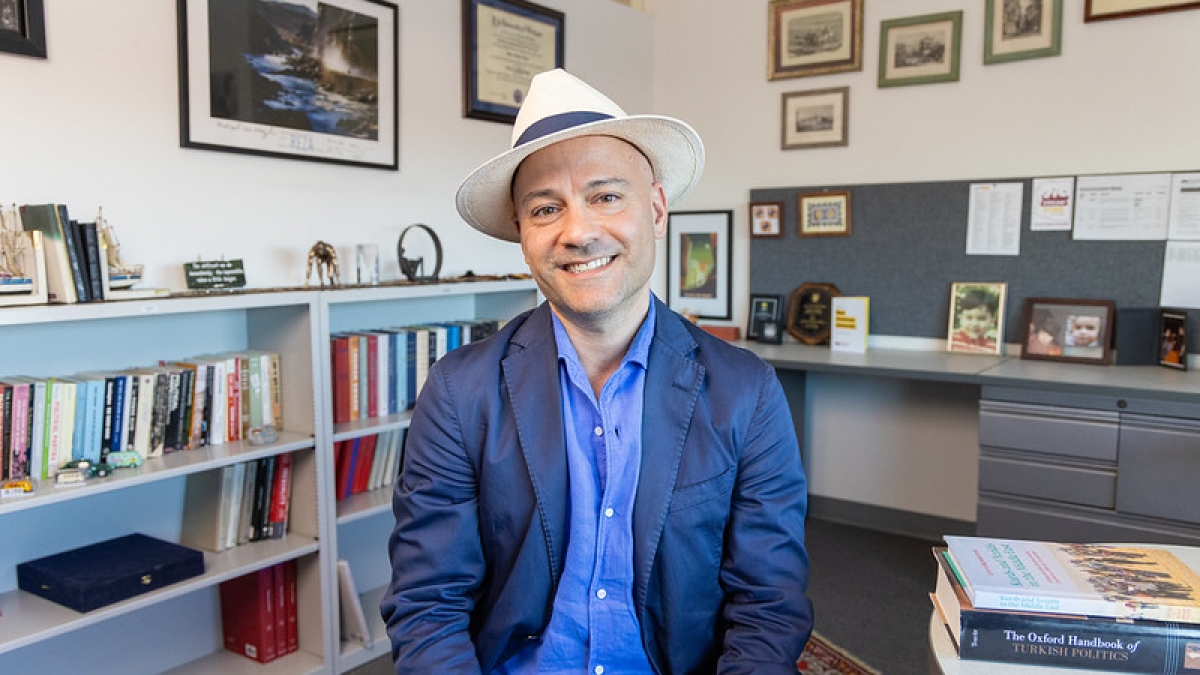Dylan's Nobel Prize win shows definition of literature is changing
ASU English prof on musician's historic win, the controversy surrounding it and what it means for the future of the lit prize

Singer-songwriter Bob Dylan’s winning the Nobel Prize in Literature has many in the literary community up in arms, and the genre-defying Dylan himself remains mum on whether he’ll accept.
Arizona State University English professor Elizabeth Horan, however, is “thrilled” about the first-ever musician to win the prize.
A longtime appreciator of Dylan’s work, Horan teaches a course on Nobel laureates in which one of her students’ assignments is to predict who will win the prize for literature that year. Over the years, she has had several students make a case for the “Like A Rolling Stone” crooner.
To celebrate his win, Horan and the ASU Department of English are hosting “Bringing It All Back: Bob Dylan Nobel Prize Celebration 2016” from 1 to 2 p.m., Wednesday, Oct. 26, in room 316 of the Durham Language and Literature Building on the Tempe campus. The event is free and open to public, as well as the entire ASU community. Attendees are encouraged to bring, recite or perform their favorite Bob Dylan lyric (one song). Click here to RSVP.
Read on for Horan’s take on the “scandalous” history of the Nobel Prize in Literature, her favorite Dylan songs, and whether she thinks he’ll eventually accept the award.
Question: How is the winner of the Nobel Prize in Literature chosen?
Answer: The Swedish Academy goes by the terms of Alfred Nobel’s will. His will is quite vague, and he also wrote it in Swedish, which wasn’t his first language. His will states that the prize should go to the most outstanding work in an idealistic direction. So it’s kind of vague.
The person has to be alive at the time the academy makes the decision, and it rarely goes to someone young. Only one or two people have received the prize before the age of 45. It’s not a rule, but they generally tend to go to people who are at least in their late 40s, more often in their 60s, who usually have a large, important body of work. And they have to be nominated either by professors of language and literature or by the Swedish Academy.
Q: What was your reaction when you heard Bob Dylan was being awarded the prize?
A: I was speechless. I get up at 3:30 in the morning every year when they announce the winner so that I can be one of the first to know, because when I’m teaching the Nobel laureate class, I need to get ahold of books before copies disappear. I’m not teaching the course this year so there wasn’t a big rush, but I began thinking about how I could do a whole course on Bob Dylan. The next thing I did was write to some of my students who have nominated him in the past and have been the most vehement about it.
Q: Are you happy with the academy’s decision?
A: I’m really happy because it shows the Swedish Academy is getting more open about what its idea of literature is. It’s no longer just big novels. They’re thinking more broadly about literature, and literature in performance. And that bodes well for things like graphic novels and other forms of performed literature. I’m also glad because one of the problems someone from the U.S. would have had with winning the prize is that since Toni Morrison was the last American to get it, whoever follows her has to live up to that. And Bob Dylan does. I was thrilled.
Q: So it’s safe to say you’re a Dylan fan?
A: When I teach the Nobel laureate class, I have to be completely impartial. So I don’t reveal that I’m a Bob Dylan fan. But I can now admit, when I was 12, I switched from piano to guitar so that I could learn to play Bob Dylan songs.
Q: Do you have a favorite?
A: The first song I learned to play was “Mr. Tambourine Man.” I also really like “Tangled Up in Blue.” I tend to like the songs with complex lyrics, as well as some of the more narrative ones, like “The Jack of Hearts” and “Hurricane.” And that’s one of the things that’s so amazing about Dylan. He’s produced so many different kinds of songs.
Q: What happens when someone wins the prize?
A: The winner goes to Stockholm and gives a banquet speech, called the Nobel Lecture. They’re all good, and it’s one of the things we read in my class. You can read them all on the Nobel website. Different people do different things with that occasion. Sometimes they use it to bring up political things, like British playwright Harold Pinter did.
It was incredible what he did. He used the opportunity to denounce the invasion of Iraq, which both the U.S. and Britain were very involved in, and that’s something U.S. students aren’t often aware of. It was a controversial and extremely well-done lecture. Students always get wound up when they see that. One of my first thoughts after getting over the shock and the thrill that Dylan had won was, what will he do with the lecture?
Q: Is there often controversy surrounding the prize?
A: Whenever anyone wins the prize, there’s always a scandal. It’s always the case. Because there’s so much money involved. The very fact of having $1 million dollars associated with one prize is embarrassing to some people, particularly when it’s connected to something like the realm of culture, where there’s no absolute, agreed-upon standard about what constitutes a good piece of literature. Or even what literature is. Science prizes have always been controversial as well, but more so about who to give credit to for discoveries.
Another part of the scandal surrounding the prize has to do with the publishing community. In October, they’re very keyed in to who will win because it results in a big bump in sales. So a publisher will recall books they’ve printed and reprint the cover to reflect a writer’s Nobel Prize-winning status.
Q: Aside from a pseudo-acknowledgement on his website that was surreptitiously removed, Dylan has yet to acknowledge whether or not he’ll accept the prize. Is that unusual?
A: The only person to turn down the Nobel Prize for Literature was French philosopher Jean-Paul Sartre. He explained that it had long been his policy not to accept any honors or recognitions for his work.
But many past winners have been uncomfortable with it. For instance, Canadian short-story writer Alice Munro won and said she wasn’t feeling well enough to attend [because she was overwhelmed by] so much press attention in such a short period of time. People who have written about receiving the prize say it’s so intense. Often with novelists, their first book after having won is usually pretty mediocre. That’s because being a good writer requires a steady, set routine and time alone.
Q: Do you think there’s any indication Dylan may turn down the prize?
A: The fact he has not said anything yet is quite interesting. It seems to me a little unlikely, but I’m not going to rule it out.
More Law, journalism and politics

CBS News president to give keynote address at Cronkite School’s spring convocation
Ingrid Ciprián-Matthews, president of CBS News, will serve as the keynote speaker at Arizona State University’s Walter Cronkite School of Journalism and Mass Communication spring 2024 convocation. …

School of Politics and Global Studies director's new book explores mass violence
Why do people commit atrocities and why are certain groups, including religious and ethnic, more vulnerable to large-scale violence? These questions are explored in a new book by Güneş Murat Tezcür…

ASU faculty contributing to improvement of Wikipedia
Many academics have a love-hate relationship with Wikipedia. While the website has information about almost anything you can imagine, the credibility of that information is sometimes suspect. Tracy…